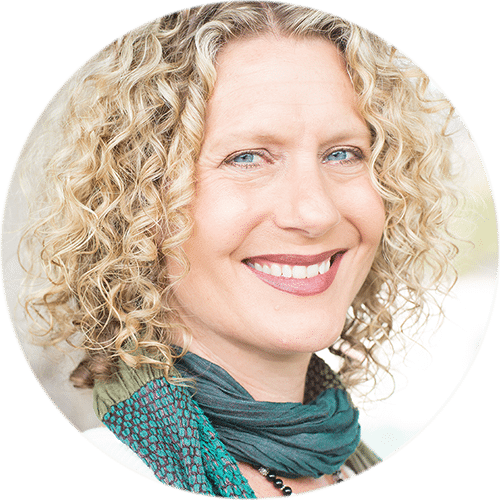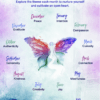
“We can never obtain peace in the outer world until we make peace with ourselves.”
~Dalai Lama
Cultivating inner peace and joy through self-nurturing practices are the foundation of what I teach clients. One of the greatest thieves of our inner peace is negative thinking. Committing to transforming critical and anxious thoughts to positive and uplifting ones can impact our brains in very positive ways.
In search of more ways to support my clients, I read the book Neurosculpting: A Whole-Brain Approach to Heal Trauma, Rewrite Limiting Beliefs and Find Wholeness by Lisa Wimberger. This fabulous book is a treasure trove of practices to cultivate inner peace and utilize the gift of neuroplasticity to change how our brains respond to stress and fear. There is even a chapter called “Cultivating Self-Nurture.”
Lisa describes neurosculpting as “a mental training process that quiets our fight-or-flight center and activates our prefrontal cortex, which is the mind’s seat of our compassion and empathy.” Imagine the possibilities available to each of us if we viewed our lives through open-hearted compassion and empathy, rather than constricting fear and anxiety.
Self-awareness is an important first step in transforming our thoughts. As a curious and non-judgmental observer, take a quick self-inventory of your most common thoughts throughout the day. Are they filled with gratitude, self-compassion and acceptance or more often worry, judgment and regret?
If you found yourself thinking more worried and negative thoughts you are not alone. What is fascinating about the brain and neuroplasticity, is that the thoughts we think actually train our minds to focus on the positive or the negative in our lives.
And if we can train our minds then we have choice. We can choose to cultivate inner peace one thought at a time.
Lisa Wimberger posed two powerful questions in her book, which I offer to you:
1) “What thoughts are you inputting that keep your limbic brain, or fear response exercised and strong and your prefrontal cortex weak and subordinate?”
2) “Would I input different thoughts or patterns if I had a direct line of communication with my highest self or spirit?”
I love these clarifying questions as they reinforce our ability to make intentional choices about what we feed our minds and in turn how we can cultivate more positive thinking and patterns in our lives.
To begin, in the next few days when you are feeling upset and anxious, observe what thoughts you are feeding yourself. If you notice they are fueling more anxiety, pause and then choose a more empowering thought. If you are cataloging a list of “what if the worst things happen” that lead you down a fearful path, transform them into a list of “what if things goes beautifully, smoothly, easily, etc.” Notice how you feel when you shift your thinking and remind yourself that you have the power to cultivate inner peace one thought at a time.
As Thich Nhat Hanh reminds us, “Awareness is like the sun. When it shines on things, they are transformed.”
May your awareness empower you to cultivate inner peace one thought at a time so that you can nurture peace in the world from the inside out!

Sending you so much peace, love and gratitude,

Kelley Grimes, M.S.W.
Counselor, Author & Speaker

Sign up to receive daily reminders with our mobile app!




I am very interested in this topic Kelley so thank you for sharing this book and your blog. With awareness we can learn to observe the fight, flight or freeze response and choose a higher level of reasoning. Thanks!
I would love to talk more with you about this book after you read is Lisa! It is a wonderful set of practices to retrain the brain and nurture ourselves deeply. You can also access more information on her website https://neurosculptinginstitute.com/. Thank you so much for your comment!
Beautiful, Kelley. Our thoughts and deep-seated beliefs certainly do create our reality! As you say, self-awareness is the key to creating shifts. LOVE the Thich Nhat Hanh quote: “Awareness is like the sun. When it shines on things, they are transformed.”
I love that quote from Thich Nhat Hanh too Reba! So powerful to know that when we shine the light of awareness on our thoughts and beliefs we can transform them. Thank you so much for your loving comment!
love this Kelley! Our minds were on the same wave link. My blog is about intentionally recalling blissful moments. Much love!
How wonderful that our minds were on the same wave link Ruthie! I look forward to reading your blog and am so grateful for your lovely comment!
Wonderful insights. When we realize we have a choice, it changes everything.
It is so amazing how empowering the knowledge is that we have a choice Barb! Thank you so much for your kind comment!
Such beautiful and inspiring words of wisdom! Great article! So perfect for today. Just perfect!
Thank you so much Kim! I am so glad it resonated so much with you. I hope you have a beautiful day!
Kelley, you and I are on the same page. My March newsletter was on Neuroplaticity and my friend Dr. Melanie Greenberg’s new book – The Stress-Proof Brain and I am off to check out – Neurosculpting: A Whole-Brain Approach to Heal Trauma, Rewrite Limiting Beliefs and Find Wholeness by Lisa Wimberger. Thank You! 🙂
How wonderful Debra! I will definitely check out The Stress-Proof Brain. I love how many of these self-nurturing practices positively effect the brain and that we have more and more evidence demonstrating these powerful impacts. I am so grateful for your comment! Thank you!
I love those power questions, Kelley! I’m a big fan of questions that really make us supersize our “what if!”
Thanks for another great post. 🙂
Thank you so much Sheila! I love how her questions really hold us accountable for what thoughts we are feeding our mind with and remind us of the empowering opportunity to transform them. I really appreciate your comment!
Oh, I love that Kelley! I think Neuroplasticity is so fascinating. Whenever I catch myself thinking anxiety and fear producing thoughts, I intentionally stop myself and switch to positive affirmations. That has made a huge difference in my peace of mind.
I totally agree Nicole that neuorplasticity is so fascinating! The fact we can grow our prefrontal cortex and shrink our amygdala with consistent meditation is so exciting and more and more research points to the power of positive thinking as well. Thank you so much for sharing your experience and the difference it has made in your life!
Some seriously great questions to ponder. It is so important to be intentional with our choices! Thank you for this!
I love these questions because they go to the heart of our choices and highlight how we can empower ourselves! I am grateful for your comment! Thank you.
Love this, Kelley. When I stumbled upon the science of neuroplasticity after my husband’s sudden and unexpected death five years ago, it was the first time I had hope that my anxiety and dread would ever go away and my trauma would heal. As you point out, it’s important to have self awareness, but it’s also great when you have actions you can take to correct your brain when it wants to go down the trauma and fear path. I love this article and the idea that we can recognize what our brain is doing and retrain it to consider love and hope, instead of pain and fear, as our future outcomes.
Thank you so much Jacqui. Being able to retrain our brain and heal our trauma is so hopeful and empowering as is cultivating multiple self-nurturing practices to support us in focusing on love, hope and positivity. I am deeply grateful that you shared your experience.